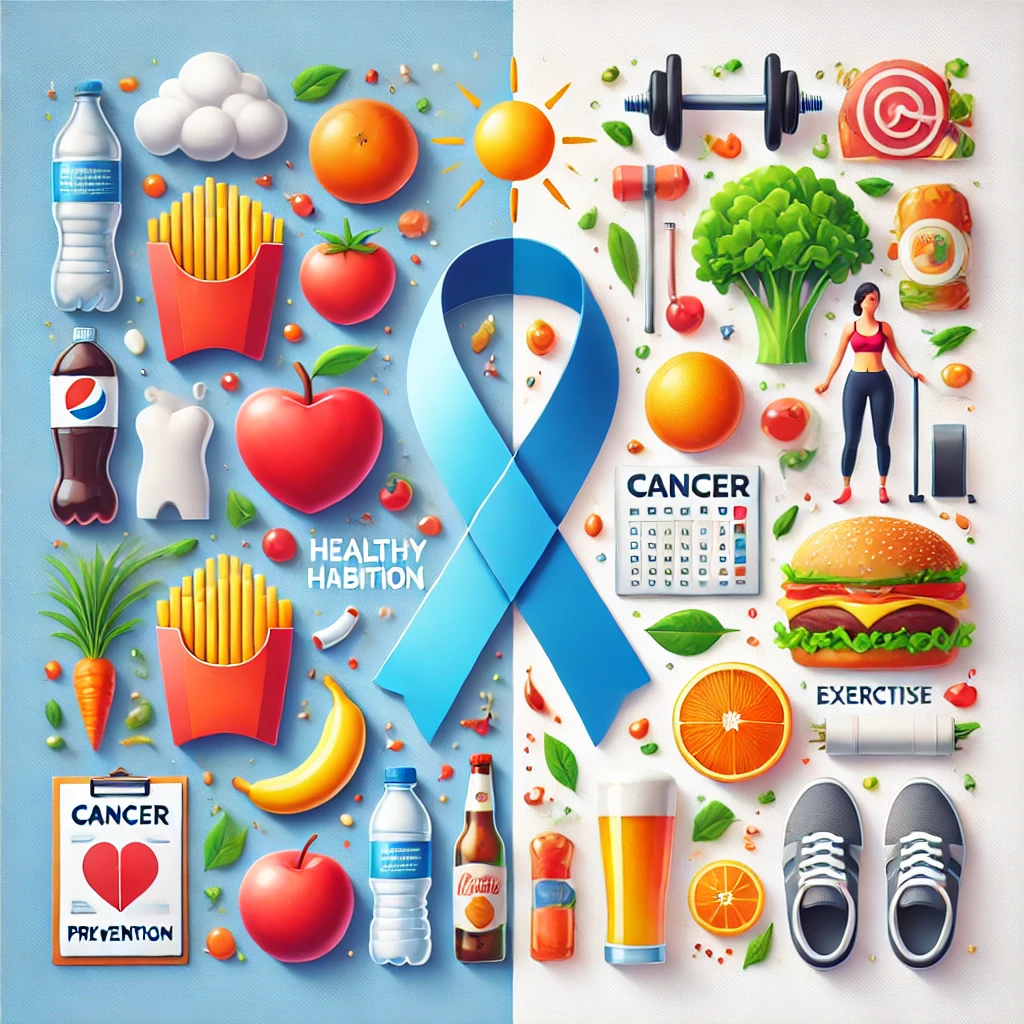Cancer is a major public health concern, affecting millions of people across the world. Most cancers cannot be attributed to a single cause but rather to a combination of risk factors. While some of these factors like genetics are indeed beyond one’s control, adopting a healthy lifestyle can help reduce the likelihood of developing various types of cancer. Today’s post highlights certain lifestyle factors that impact cancer risk and how to make healthier choices. Let’s get to it!

Diet
What we eat plays a major role in cancer prevention. Diets rich in processed foods, red meats, and sugary beverages have been linked to an increased risk of cancers such as colorectal, breast, and pancreatic cancer. On the other hand, consuming a balanced diet with plenty of fruits, vegetables, whole grains, and lean proteins can help protect against cancer.
What should you eat more? Green vegetables, berries, nuts, fish, and whole grains. These provide antioxidants and anti-inflammatory properties that help reduce cancer risk.
What should you cut down on? Processed meats, deep-fried foods, sugary snacks, and excessive alcohol consumption. These can contribute to inflammation and cell damage.
Tobacco and Alcohol Consumption
Smoking is one of the leading causes of preventable cancer deaths. It has been associated with lung, throat, mouth, pancreas, and bladder cancers. Even secondhand smoke exposure increases cancer risk. Thus, quitting smoking at any stage reduces the likelihood of developing cancer and improves your overall health .
Excessive alcohol consumption is another major risk factor, contributing to cancers of the liver, breast, esophagus, and colon. At HealthFacts, we typically suggest that you stay away from alcohol completely. However if you must drink, the he American Cancer Society recommends limiting alcohol to:
- Men: No more than two drinks per day
- Women: No more than one drink per day
Obesity
Obesity is linked to at least 13 types of cancer, including breast, ovarian, and colorectal cancer. Excess body fat increases inflammation, hormone imbalances, and insulin resistance, all of which contribute to cancer development.
To maintain a healthy weight:
- Eat a nutrient-dense diet with controlled portions.
- Exercise regularly to burn excess calories and improve metabolism.
- Manage stress levels, as chronic stress can contribute to weight gain.
Physical Activity
A sedentary lifestyle is also associated with an increased risk of several types of cancer. Regular physical activity helps regulate hormones, boost the immune system, and reduce inflammation, all of which lower cancer risk. Aim for at least 150 minutes of moderate exercise or 75 minutes of vigorous exercise per week. Participate in activities like walking, jogging, swimming, and strength training as they help maintain a healthy weight and lower cancer risk.
Sun Exposure
Prolonged exposure to ultraviolet (UV) rays from the sun or tanning beds increases the risk of skin cancer, including melanoma. To protect your skin:
- Wear sunscreen with at least SPF 30 daily.
- Avoid excessive sun exposure, especially between 10 a.m. and 4 p.m.
- Wear protective clothing, hats, and sunglasses when outdoors.
Indeed, no lifestyle choice guarantees complete cancer prevention. However, adopting healthier habits can significantly lower your risk. We hope you find today’s post useful in your cancer prevention journey!
Remember to subscribe to our newsletter for more updates from us!









